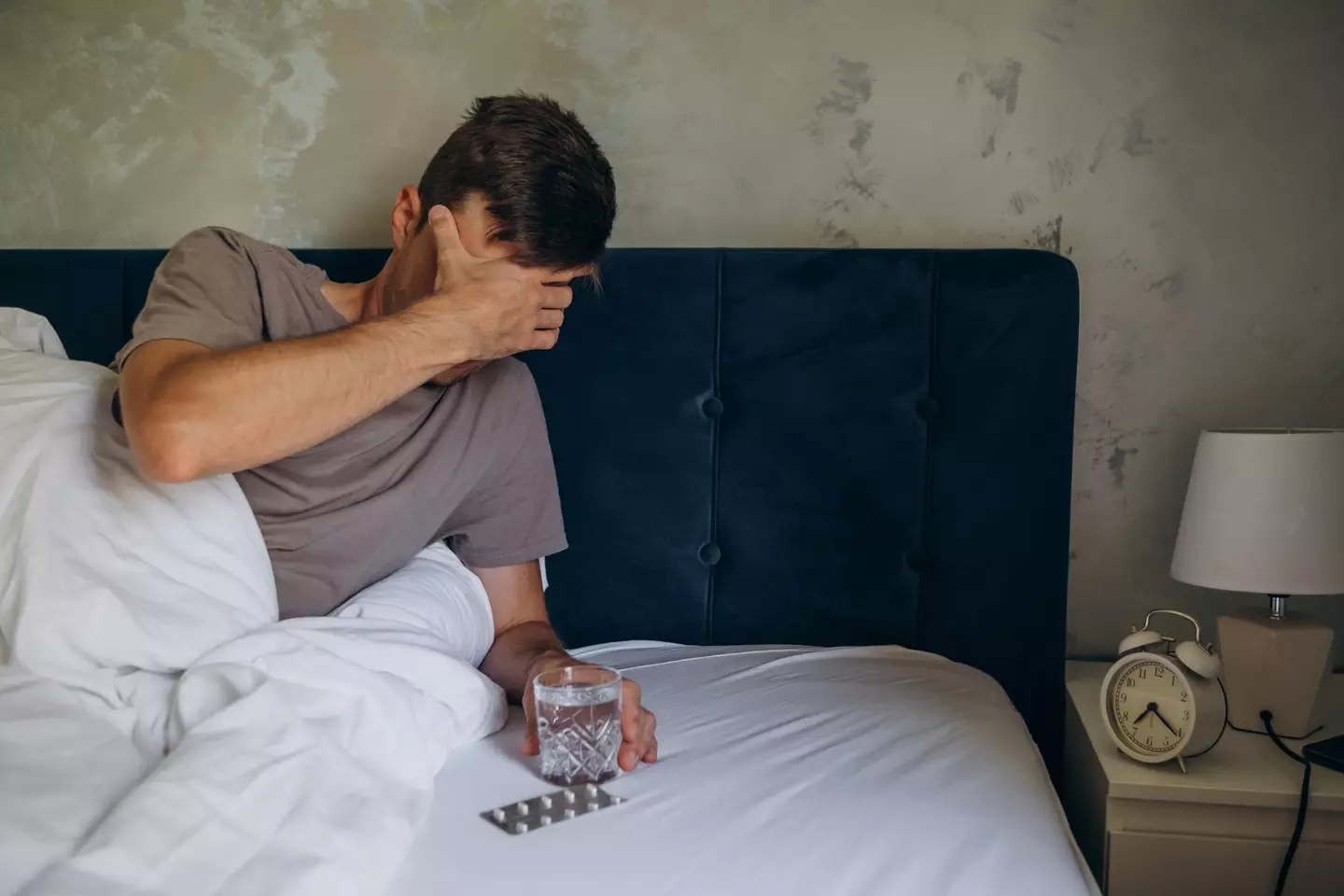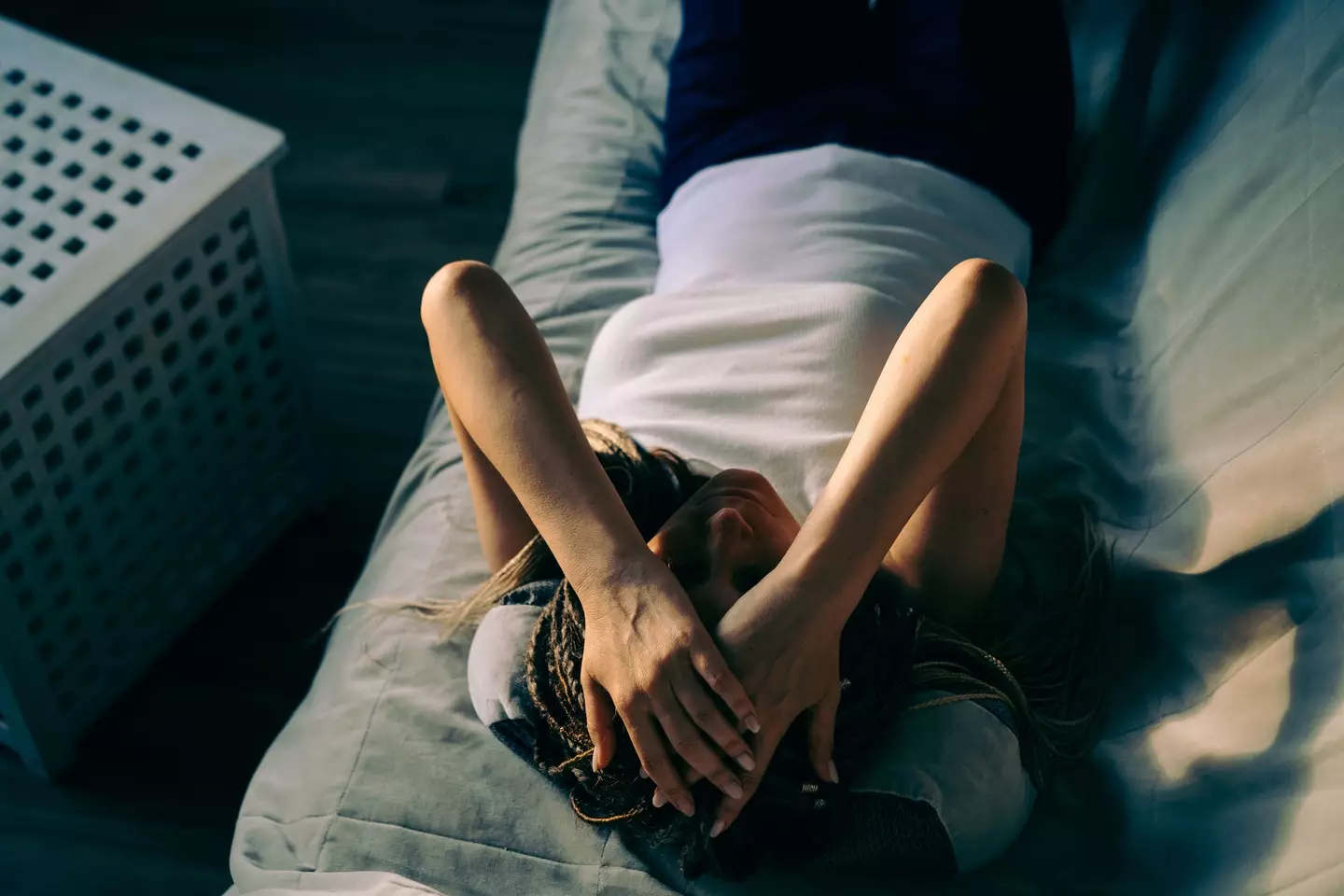.jpg%3Fcrop%3D2004%2C1128%2Cx0%2Cy184)
Some people see hangovers as a badge of honour that must be suffered through as recompense for a fun night out. For the rest of us, we’ve all got out own rituals for trying to keep the dreading hangover at bay.
Sipping water between pints, having a Berocca before bed, washing down paracetamol with Lucozade in the morning, and even the classic hair of the dog can all help to stave off the worst of a hangover, but none of them come with guarantees.

Thankfully, a cure-all for hangovers could be closer than you think. A team of scientists in China have created an oral probiotic that can help to break alcohol down in the digestive tract, subsiding some of the work typically done by your liver.
Advert
'Oral Probiotic Expressing Human Ethanol Dehydrogenase Attenuates Damage Caused by Acute Alcohol Consumption in Mice,' was published in the Journal of Microbiology Spectrum and reported the studied effects of this potential hangover cure.
The ‘hADH1B-expressing’ probiotic was tested on some mice that had been intoxicated with alcohol under lab conditions. Before administering the probiotic, the scientists measured how long it took for the drunk mice to recover on their own, with the figure ranging between six and 10 hours.
An hour after being given the alcohol, the mice were put into an ‘exercise recorder’ where they were monitored every 15 seconds to measure how quickly they were recovering from the alcohol, with one group having had the probiotic and others going in with nothing but their little mousey livers.
"The righting reflex was used as the criterion to determine drunkenness,” explains a report from the study. “Briefly, each mouse was placed on its back on the ground with its abdomen and limbs facing upward. If the mouse could not turn itself over within 30 seconds, it was considered to have lost its normal righting reflex.
"The time point at which the righting reflex was lost was defined as the drunkenness point, and the duration between the first drink and drunkenness was taken as the alcohol tolerance time."
For the mice, the probiotic group recovered their exercise capacity at around the 5.5-hour mark, while those without the probiotic took 6.4 hours to recover.
A quarter of the probiotic mice 'did not lose their self-righting reflex and exercised throughout the whole process'. Meanwhile, every mouse in the non-probiotic group 'lost their locomotor ability after the alcohol challenge'.
Not only did the probiotic reduce how much alcohol their bodies absorbed, but it also increased the length of time for which they could tolerate the alcohol. And of course, it accelerated their recovery time.
"We believe genetically engineered probiotics will provide new ideas for the treatment of liver diseases,” said Meng Dong, Ph.D, a member of the research team.

"We are excited about the improvement of recombinant probiotics in acute alcohol-induced liver and intestinal damage."
Impressive results in mice don’t mean we’re anywhere near getting this elixir for ourselves, but it’s a promising bit of research that puts a genuine cure for hangovers on the horizon.
As always, please drink responsibly. If you want to discuss the effects and impacts of alcohol on either yourself or someone you know, you can speak with Drinkline in confidence on 0300 123 1110, 9am–8pm weekdays and 11am–4pm weekends for advice and support.
